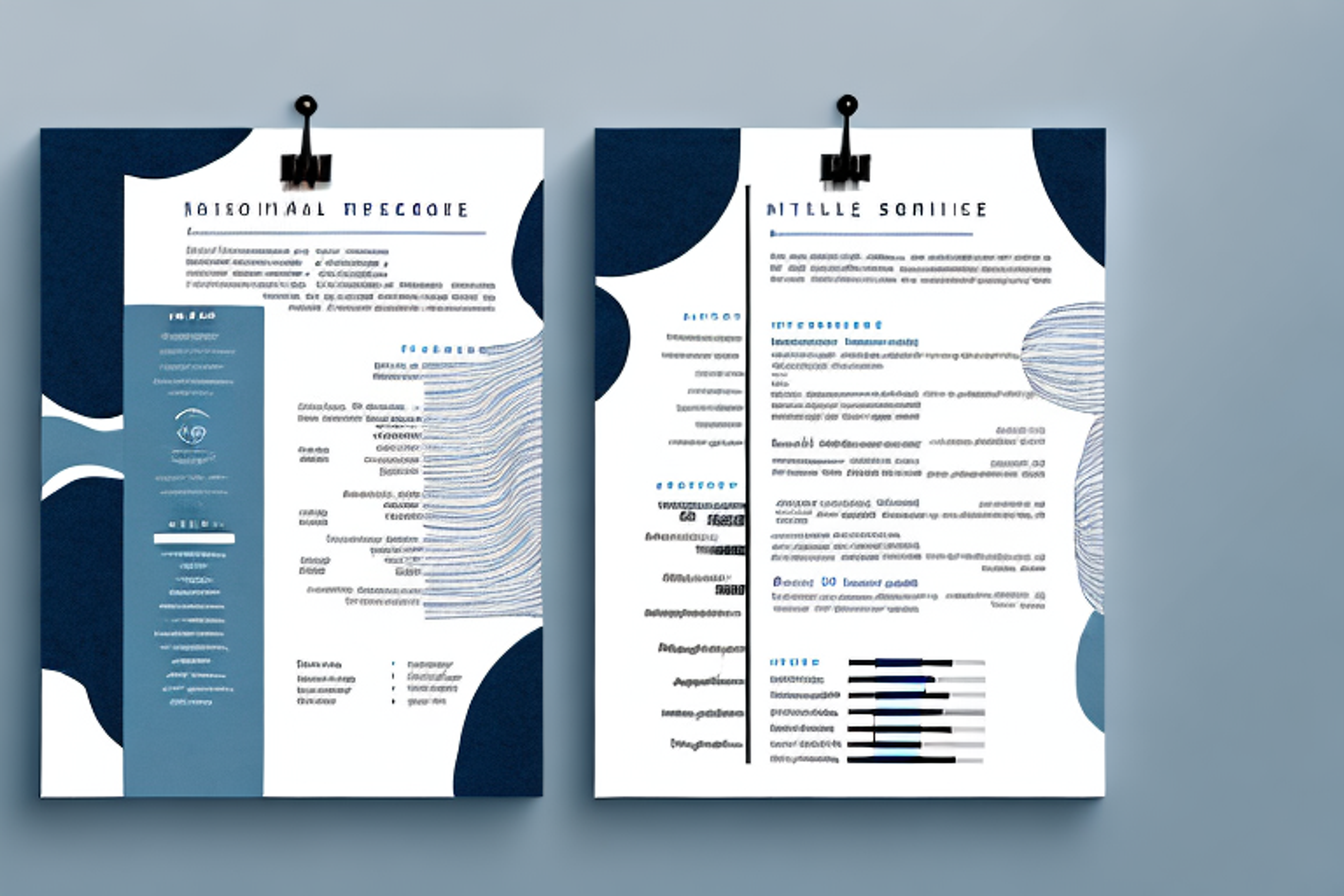How to Craft a Standout Private Equity Resume
Learn how to create a winning private equity resume that stands out from the crowd.
Posted March 6, 2025

Table of Contents
If you're working towards a position in private equity, then crafting an impressive resume is essential. This industry is incredibly competitive, and a well-crafted resume can help you stand out among other candidates. In this article, we will provide you with a detailed guide on how to create a standout private equity resume. We will cover everything from understanding the industry to formatting tips and how to prepare for the interview process. So, let's dive in!
Understanding the Private Equity Industry
Before you start crafting your resume, it's important to have a good understanding of the private equity industry. Private equity firms are investors that raise funds from institutional investors and high net worth individuals. They then invest those funds in private companies, with the aim of making a substantial return on their investment. This industry is highly competitive, and firms are looking for candidates with the right combination of education, experience, and skills.
Private equity firms typically invest in companies that are not publicly traded, meaning they are not listed on a stock exchange. These companies may be in various stages of growth, from start-ups to established businesses. Private equity firms often take an active role in managing the companies they invest in, with the goal of improving their operations and increasing their value. This can involve making changes to the company's management team, strategy, or operations. As a result, private equity professionals need to have strong analytical and problem-solving skills, as well as the ability to work collaboratively with others.
Researching the Company and Position
One of the first steps in crafting a standout private equity resume is to research the specific company and position that you're applying for. Check out their website and read up on their mission and values. This will give you an idea of what they're looking for in a candidate. You should also read the job description carefully, noting down any required skills and experience.
Additionally, it can be helpful to research the company's competitors and industry trends. This will give you a better understanding of the market and how the company fits into it. You can also use this information to tailor your resume and cover letter to highlight your relevant skills and experiences in relation to the company's needs and goals.
Highlighting Relevant Experience and Skills
When crafting your resume, you should highlight your relevant experience and skills. This means using bullet points to outline the specific skills you have that fit the job description. For example, if the job requires financial modeling skills, you should highlight any experience you have in this area.
It's important to note that you should tailor your resume to each job you apply for. This means adjusting the skills and experience you highlight based on the specific job requirements. Additionally, don't be afraid to include transferable skills that may not be directly related to the job, but still demonstrate your abilities and work ethic. For example, if the job requires strong communication skills, you could highlight experience in public speaking or customer service.
Showcasing Accomplishments and Achievements
In addition to highlighting your skills and experience, you should also showcase your accomplishments and achievements. For example, if you helped a company raise a significant amount of capital, you should highlight this on your resume. This will give the potential employer an idea of the impact you can make in their company.
Another way to showcase your accomplishments is by providing specific metrics or numbers. For instance, if you increased sales by a certain percentage or reduced expenses by a specific amount, include these figures on your resume. This will demonstrate your ability to achieve tangible results and make a positive impact on the company's bottom line.
It's also important to tailor your accomplishments to the job you're applying for. Look at the job description and identify the key skills and qualifications the employer is seeking. Then, highlight your accomplishments that align with those requirements. This will show the employer that you have the skills and experience they're looking for and increase your chances of getting hired.
Incorporating Keywords and Industry-Specific Language
When crafting your private equity resume, it's important to incorporate keywords and industry-specific language. This will show the potential employer that you understand the industry and have the relevant skills. For example, use terms such as "financial modeling," "private equity deals," and "leveraged buyouts."
Additionally, it's important to research the specific company you are applying to and incorporate their industry-specific language and keywords into your resume. This will demonstrate that you have done your homework and are truly interested in the position.
However, be careful not to overuse industry jargon or buzzwords. While it's important to show your knowledge of the industry, using too much jargon can make your resume difficult to read and understand. Strike a balance between using relevant terminology and keeping your language clear and concise.
Formatting Tips for a Professional Appearance
The format of your resume is also important. It should be easy to read and have a professional appearance. Use bullet points to highlight key information, and avoid using long paragraphs. You should also use a clear and legible font, such as Arial or Times New Roman.
Another important aspect of formatting your resume is to ensure that it is consistent throughout. This means using the same font, font size, and formatting style for each section. Additionally, make sure that your headings and subheadings are clearly defined and stand out from the rest of the text. Consistency in formatting will not only make your resume look more professional, but it will also make it easier for the hiring manager to read and understand.
Including Education and Certifications
When crafting your private equity resume, you should also include your education and certifications. List your degrees in reverse chronological order, starting with your most recent degree. You should also list any certifications that you have earned that are relevant to the job.
Avoiding Common Resume Mistakes in Private Equity
Finally, it's important to avoid common resume mistakes in private equity. These include spelling and grammatical errors, lying about your experience, and using a generic resume for all job applications. Take the time to customize your resume for each job you apply for, and have someone else proofread it for you.
Another common mistake to avoid in private equity resumes is not highlighting your achievements and quantifiable results. Private equity firms are interested in candidates who can demonstrate their ability to add value to the firm and generate returns for investors. Therefore, make sure to include specific examples of your accomplishments, such as successful deals you have worked on, fundraising achievements, or cost-saving initiatives you have implemented. This will help you stand out from other candidates and increase your chances of landing the job.
Tailoring Your Resume for Different Private Equity Roles
It's important to note that private equity roles can vary from firm to firm. Take the time to research the specific role you're applying for and tailor your resume accordingly. For example, if the role involves more deal sourcing, then you should highlight your networking skills.
Another important factor to consider when tailoring your resume for private equity roles is the size of the firm. Larger firms may have more specialized roles, while smaller firms may require a broader skill set. Make sure to read the job description carefully and emphasize the skills and experiences that align with the specific needs of the firm.
Additionally, highlighting your experience with financial modeling and analysis can be beneficial for many private equity roles. This can include experience with Excel, financial statement analysis, and valuation techniques. Be sure to showcase any relevant coursework or certifications in these areas on your resume.
The Importance of Networking in Private Equity Job Search
Networking is critical in the private equity industry. Build connections with professionals in the industry through networking events, LinkedIn, and informational interviews. Having a strong network can help you get your foot in the door, and even lead to job opportunities.
Additionally, networking can also provide valuable insights into the industry and its trends. By connecting with professionals in the field, you can gain a better understanding of the current market and the types of skills and experiences that are in demand. This knowledge can help you tailor your job search and make yourself a more attractive candidate to potential employers.
Tips for Preparing for the Private Equity Interview Process
Once you've submitted your resume, it's important to prepare for the interview process. Research the specific firm and the individuals who will be interviewing you. Prepare answers for common interview questions, and practice your responses with a friend.
Navigating Salary Negotiations in Private Equity
The salary negotiation process can be tricky in private equity. Research industry standards and negotiate from a position of strength. Highlight your skills and experience, and be prepared to walk away if the firm won't meet your salary expectations.
Resources for Further Learning and Development in Private Equity Resumes
If you're looking to further develop your skills and knowledge in the private equity industry, there are plenty of resources available. Check out industry publications such as Private Equity International and attend industry events and conferences. You can also consider enrolling in courses or pursuing a certification in private equity.
By following these tips and guidelines, you can craft a standout private equity resume that will help you land your dream job in this competitive industry. Best of luck!











